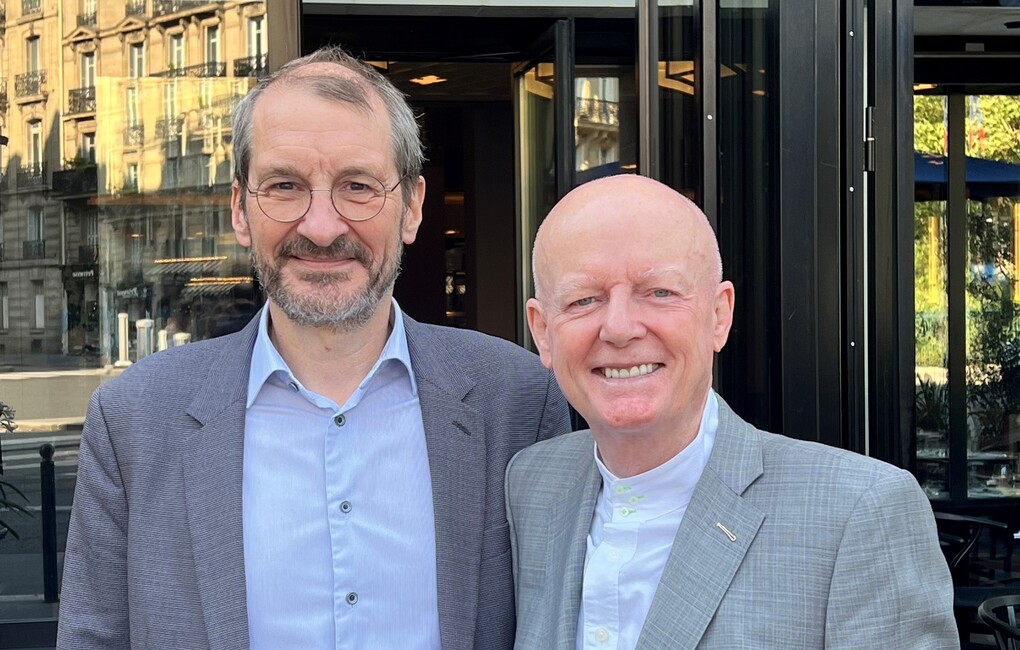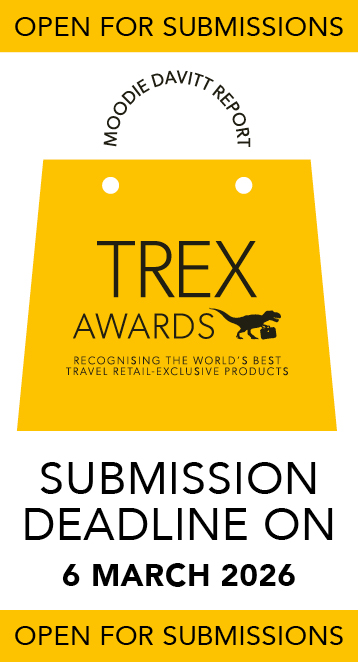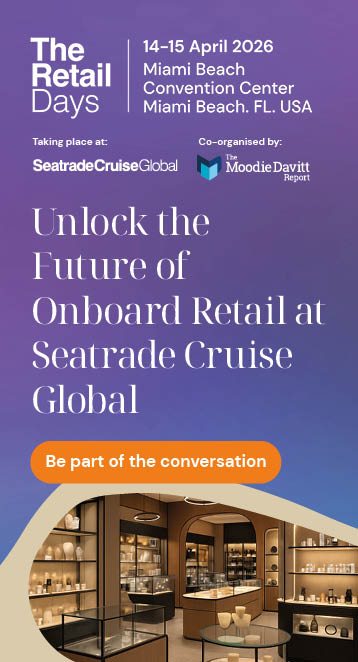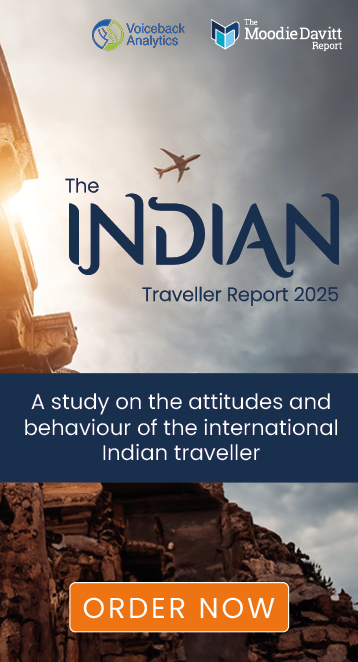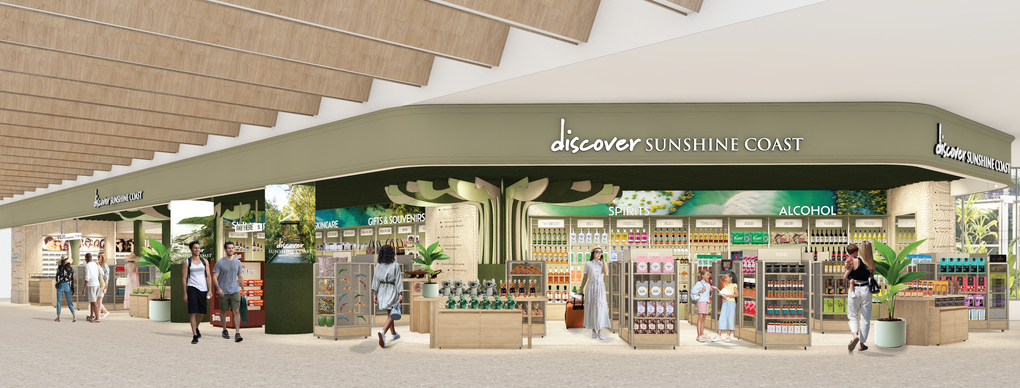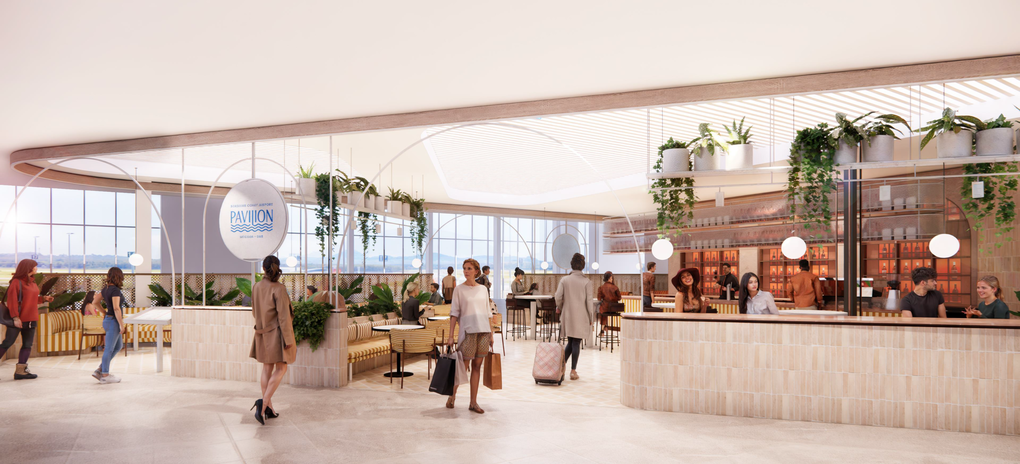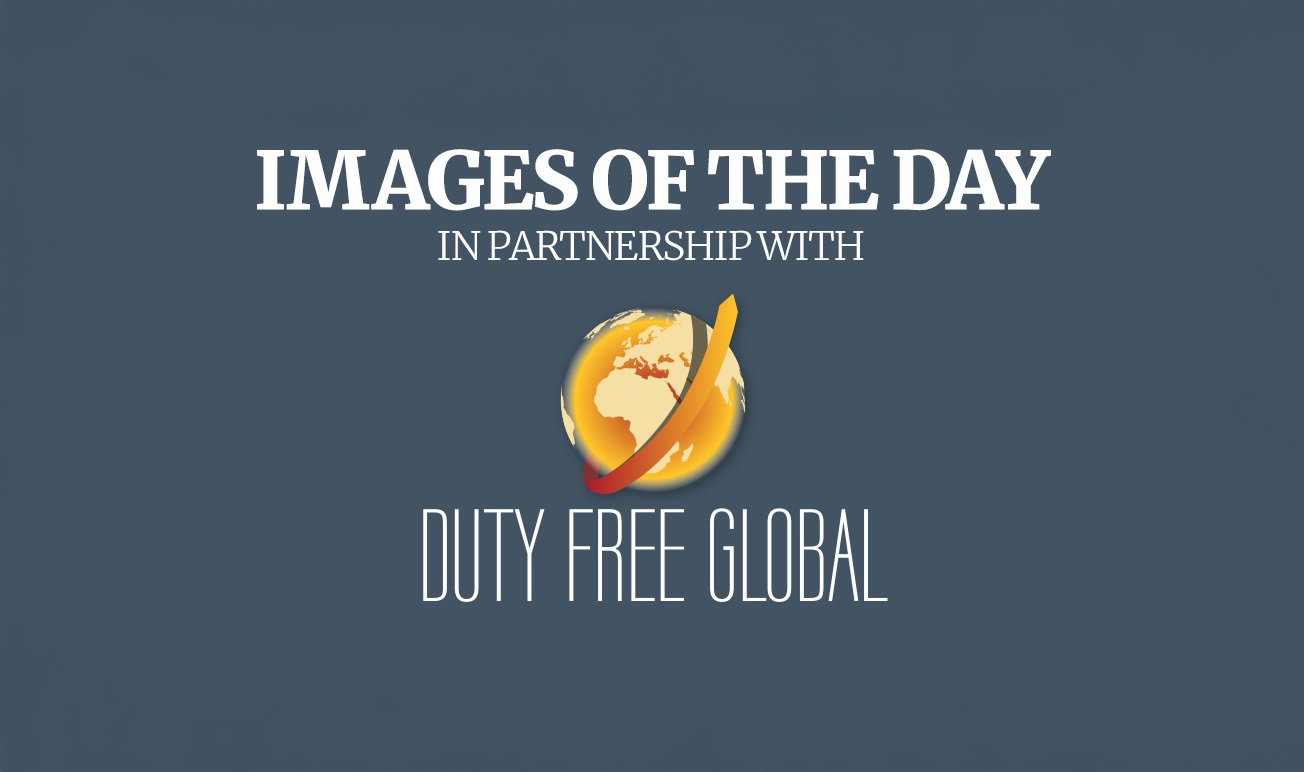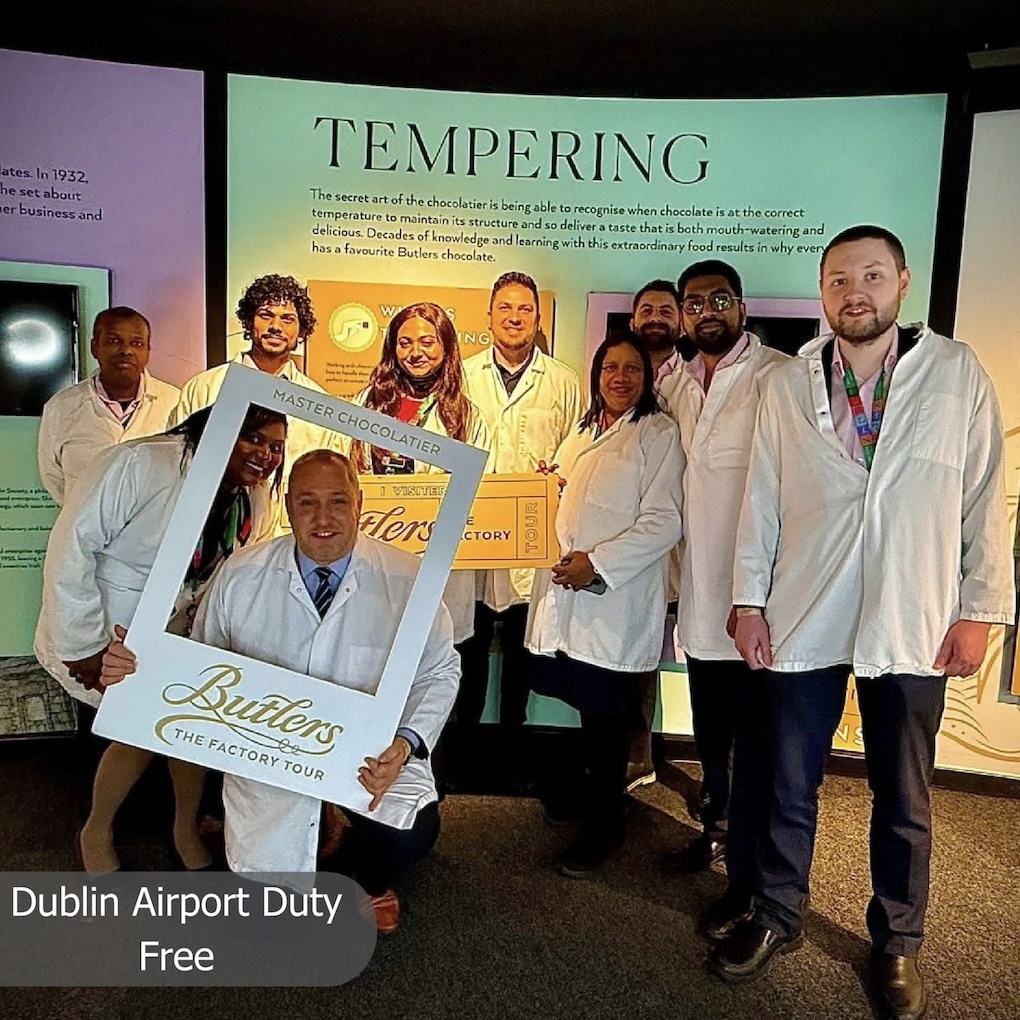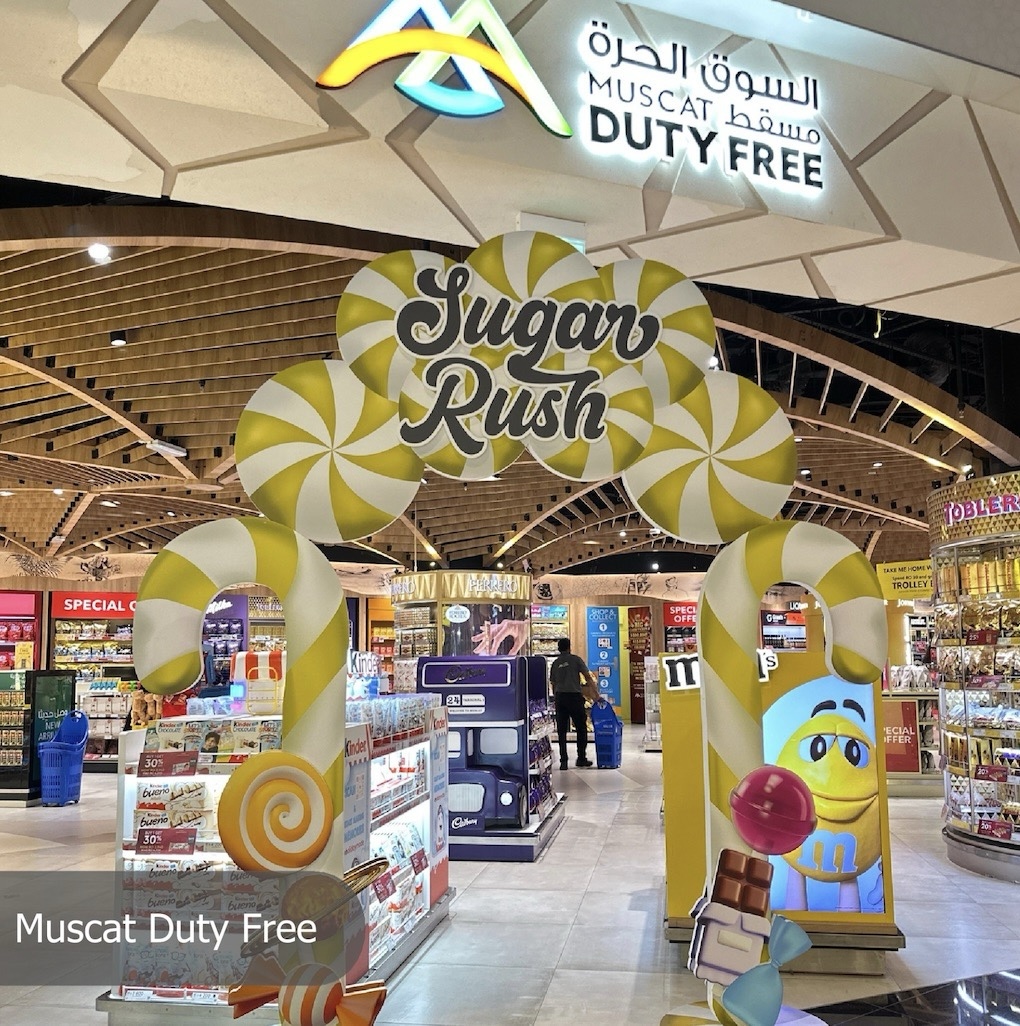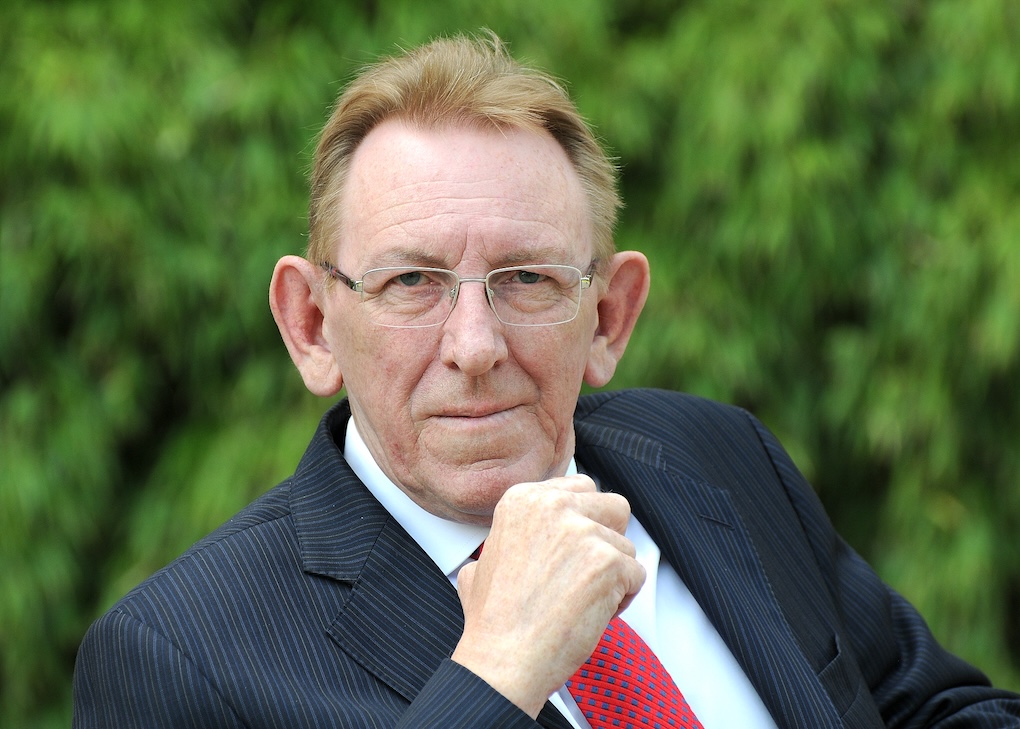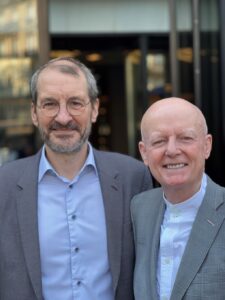
Prologue: Lagardère Travel Retail was the star performer as its Vivendi-led parent Lagardère SA posted strong first-half results in July. The duty-free, fashion, travel essentials and food & beverage company posted a +13.5% year-on-year rise in revenues to €2,748 million – representing 65.5% of group turnover.
After the announcement, Martin Moodie caught up in Paris with Chairman & CEO Dag Rasmussen. The conversation that ensued offers one of the most candid, compelling and insightful examinations of the future of travel retail you’re ever likely to read.
It’s early morning on a balmy mid-summer’s day in Paris and Lagardère Travel Retail Chairman & CEO Dag Rasmussen is in relaxed mood as we chat over breakfast at the beautifully atmospheric Brasserie Lutetia in Saint-Germain.
This softly spoken, insightful and erudite executive would never proclaim it but he has been one of travel retail’s most influential individuals over nearly a decade and a half.
Rasmussen, more than any other, has both championed and driven the convergence of airport commercial sectors – notably retail and food &
beverage, both underpinned by a strong travel essentials business. This modest evangelist for sector confluence, for example, has long and eloquently argued the case with me to include food & beverage in The Moodie Davitt Report’s annual Top Travel Retailer rankings (the message must have got through, for this year we did indeed publish two versions, one with F&B included).
The nicely weighted balance within the Lagardère Travel Retail portfolio (duty free & fashion 37%, travel essentials 34% and food & beverage 29%) has been a pivotal factor in the company’s recent success and its resilience during the pandemic.
“You know that Vivendi didn’t buy Lagardère for the travel retail. But I think they were positively surprised by what we are and what we’ve become,” he says, underlining his satisfaction at the division’s sustained strength of results over recent times.
“It is important to present a good face to shareholders. I think people are proud of what we’re doing. Our teams are very engaged, and getting these results is critical.”
Rasmussen emphasises that sector convergence is not just between retail and F&B. “Travel essentials is growing into food-venience and overall the borders between business lines are blurring. In travel essentials you now have a lot of food. For the Relay brand, it used to be product-oriented with books, press and tobacco, which were not growing categories.
“When we changed from being product-oriented to consumer-oriented and adjusted the product mix to what customers wanted, it became dynamic. It includes snacking and other food & beverage items. It was sometimes difficult, however, to convince landlords to evolve because they traditionally separated news and food, which isn’t what customers want.”
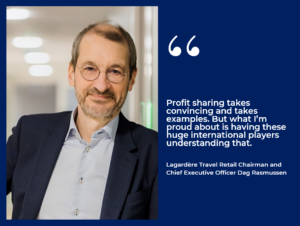
Welcoming increased F&B competition
Having been the pioneer of a duty-free retailer moving into the F&B world (accelerating with US company Paradies in 2015 followed by several others including HWH in Dubai, Vino Volo and Tastes on the Fly in the USA and Marché International in Europe), how does Rasmussen view the recent flurry of similar activity from peers, most notably Avolta through the merger of sector powerhouses Dufry and Autogrill?
“I see it very positively. It’s become the industry standard, something we launched more than a decade ago. It didn’t make sense to separate business lines, and now seeing it as the industry standard is very good. Actually, the first one to do it was Autogrill because at one point they had World Duty Free [the UK airport retailer now subsumed into Avolta but acquired by Autogrill in March in a US$1.1 billion deal] and Aldeasa [the dominant Spanish travel retailer of the time, also now part of Avolta].”
Lagardère has managed integration very differently from that long since broken-up combination, Rasmussen says. “We’ve done it very strategically, from the bottom-up. It is run platform by platform, and I think that’s what makes the difference.”
He flatly rejects the notion held in some quarters that there are no synergies between, say, duty free and food & beverage. “You cannot say there are any hard synergies but there are soft synergies, especially in management and business development,” he contends.
“Once you are in an airport and say, ‘Well, I have other options for you if you’re interested,’ our local teams become the best business developers because they know the airport. When we say, ‘OK, we’re in duty free, but how about a couple of Relays and some food stores?’, it helps. It makes us credible in tenders, and we have central teams helping to convince that it makes sense.
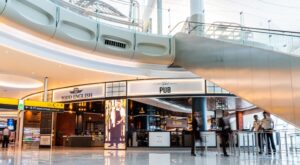
“If you look at organic growth over the past decade, we’ve outperformed all our competitors because of that – it has helped us get new stores and new contracts. I cannot really comment on Avolta, but when I speak with Xavier [Rossinyol, Avolta CEO], he says his strategy confirms the vision we have had for years. He sees the point of running the three business lines. I think that’s really great news. We still have some advantage because it takes time to make local teams efficient in three business lines. But competition is good.”
And not feared. “Our dynamic is good. Size is important, but it’s not the only factor,” Rasmussen comments. He says the company is fast and flexible and very good at managing long-term relationships.
He cites the example of Naples-Capodichino International Airport, where since taking over three years ago Lagardère Travel Retail has grown sales by more than +30% compared with its predecessor despite having the same store and the same staff.
“We won the project and transferred a very good manager from Rome, who changed the team’s spirit. This approach has been effective in several cases. Our teams often tell us, ‘You care.’ Managing the teams makes a huge difference. It’s in our DNA and it does make a difference.
“The Naples team became one of the best in Italy in terms of sales growth and dynamics. We have some tools that have proved to be the best. I’m always optimistic about what engaged people can do. Our Executive Committee hasn’t changed much since we were primarily a press distributor. When I took over, two-thirds of the profit was from physical press distribution. We changed that over the years, quietly but with the same team.”
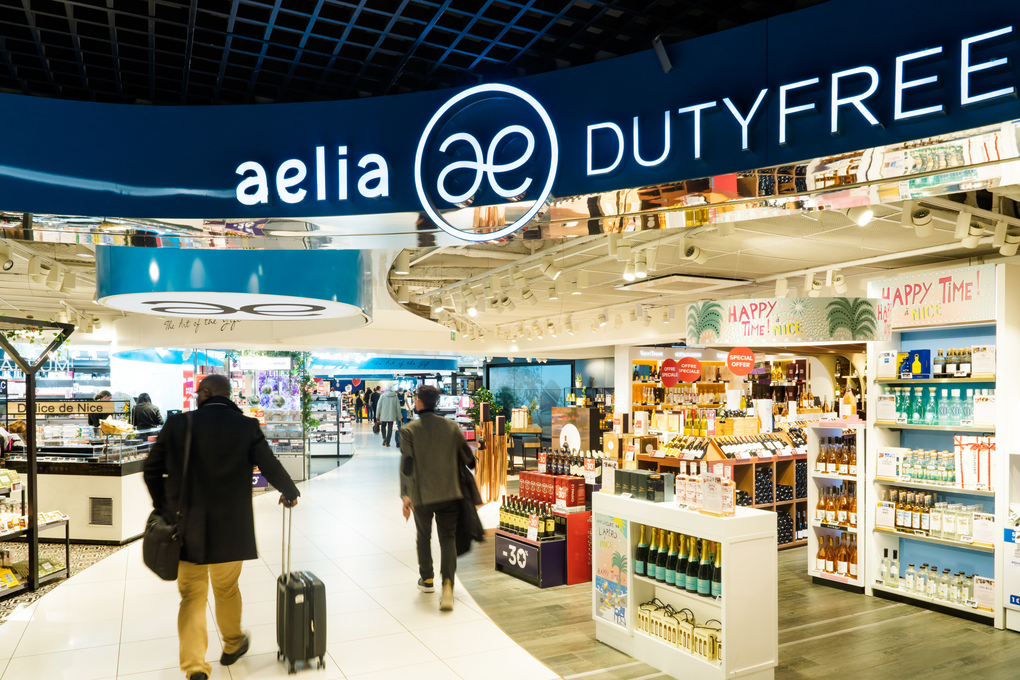
It’s an interesting and seldom-discussed point. Does the company take into account such soft skills when it bids on a contract? Do you, I ask, factor in the ability of the Lagardère Travel Retail team to make a difference over your predecessors?
“Yes, we do.”
Do you look at what has happened previously and say, ‘If we re-energise the team, we could put x% onto the business?’
“Yes. It’s difficult to know exactly what contributes to the [subsequent] success, but we do take that into account. Ideally, without having a too-strong minimum guarantee. It’s about the team, the assortment and the sense of place. I believe a lot in that.” {Main article continues below the following panel}
The evolving role of digital and AIRapid acceleration of digitalisation, in both communication and commerce terms has been a hallmark of the industry over the last decade and Lagardère Travel Retail has embraced the transition with vigour. “Today, we see digital as B2B and B2C,” Chairman & CEO Dag Rasmussen comments. “With B2B, you have some must-haves because that’s what airports want. So you must have a digital marketplace today. Nobody will tell you it’s a success but you have to have it. It’s the cost of doing business. “We have good websites where customers can pre-order. But for pre-orders to be successful, you have to offer huge discounts, so the business model is not well set. “What’s more important for us is customer satisfaction and store efficiency. It’s about how digital can help the physical store. It’s about methods of payments, artificial intelligence on assortment, and things like that. That’s where most of our efforts go because that’s where the payback is. “We introduced self-checkouts, which while not a revolution are not that common in airport retail. From one day to the other in most airports, between 40% and 50% of the transactions are through self-checkouts. Because that’s what customers want. “We can still give the levels of service airports want but there’s an additional option for the customer who likes the fast option. It means we have more time for the others, and we’ve seen that installing self-checkout is good for spend per pax and good for customer satisfaction. It’s also good for mobile payments. “That’s where we would concentrate. We are careful about what the customer wants. I don’t love the stores where you have too much digital checkout, but you need some because it’s very flexible and efficient. In food, digital is critical for ordering and so on. That’s something we are working on as well. “It’s mostly about how we can satisfy and speed up the customer journey. So that’s where most of the digital efforts go, and we have run some tests in AI [artificial intelligence] to make the business more efficient.” And AI? How influential will be it to Lagardère Travel Retail’s future? “We are starting to use AI to study tenders. It’s a test case but I think AI can help us better respond to tenders by summarising and focusing and also using all our history. Another aspect is on assortment, pricing, promotion, and determining the best elasticity. These are things we’re working on. It’s still in the test phase, but we have AI, I suggest, can also produce a summary of duty-free pricing worldwide based on what exists on various retailers’ websites, something that in past would have involved many hours of work by team members. All well and good, says Rasmussen, but don’t get hung up on price. “Duty free should be good value, but you don’t have to be the best in price. You have to be the best proposition overall, including sales staff, service and so on. “I remember some consultants saying not enough people are buying in the store; they said 10%. I asked, ‘Where did you get these figures from?’ They said it was from a serious study. I said, ‘Well, one, it’s wrong, as the figure is much more than that. And two, you should see the holistic part. “In Paris, for instance, penetration in Relay stores is between 30% and 40%, which is very high. And when you say penetration, it means that when you’re a couple it only registers as one person, so the number is way above 50%. That’s for food but also for travel essentials and duty free. “When you have a good offer, almost everybody spends. So stop saying that people don’t spend enough. It’s about directing them to spend and having the best offer. “Some people just don’t want to buy duty free, either because of their revenues or their taste. They can go to Relay, where they may find “Something I often say to the airports is although duty free might be your number one financial contributor, also think about passenger satisfaction. When you have a Louis Vuitton store, penetration is less than 1%. You make great money, but 99% of your customer base is not satisfied. So yes, think about money, but also think about retail planning which optimises customer satisfaction as long term, that’s critical for your financials. But that takes a lot of pedagogy with the airports.” |
The airport food revolution
When The Moodie Davitt Report launched The Airport Food & Beverage (FAB) Conference in early 2011, the sector was something of a poor relation to the industry’s poster child, duty free. That, partly due to sector consolidation and partly to both raised operator and airport standards, has changed drastically.
Today, food & beverage is in the industry spotlight as never before, a combination of increased exposure and, crucially, its inherent resilience against any downturn in consumer spending. At the most fundamental level, travellers need to eat, whereas a purchase of a Dior perfume or a Johnnie Walker Scotch whisky is more related to desire or gifting.
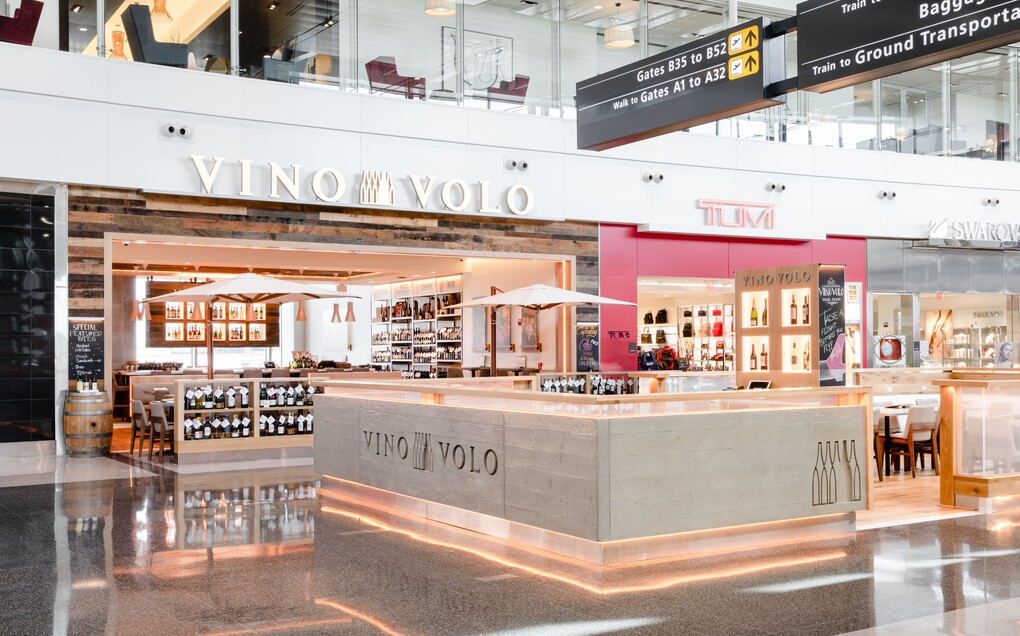
How does Rasmussen assess the F&B sector’s progress from the days when at best, consumer reaction might run something like, ‘Well, it’s OK for airport food.’
“It’s not true anymore that airport food is just OK,” he responds. “We have the same fundamentals for food as we have for travel essentials and duty free. We have the best customers in the world, including a growing number who are more sophisticated. The quality of airports and their ambitions about retail and food have improved tremendously. Demand for high quality and variety is growing.
“We have the ambition of being the food hall expert, offering various brands from the same kitchen with common processes. You might be travelling with your kids, and you might have a salad because you’re more conscious of what’s good for you but for your kids and for your grandchildren it could be very different.
“This flexibility is important because different people in the same group may have varying food preferences. So the food hall concept with a variety of offers is key. The brand portfolio is also important, with a mix of international brands such as Starbucks, Costa Coffee, Paul and Maison Kayser, local brands, and our own brands. Our own brands can bring more margin since there are no franchise fees. This mix is and will become more critical.”
I mention a compelling presentation from Paradies Lagardère Executive Vice President David Bisset at the FAB Conference in June, who highlighted a big move towards local from national and definitely away from proprietary where, as Rasmussen admits, the best margins lie. Is this serious cause for concern globally?
“Not at all. The rent makes the difference. Sometimes there’s a choice, and we wouldn’t pay the same rent in all cases. It’s store by store, contract by contract. If it doesn’t pencil, we don’t go. When we do go, it’s because we think there’s business, and the rent aligns with that. The more constraints, the lower the rent, but that’s accepted by the airport.”
Not in all cases, surely?
Rasmussen replies: “Rents are not set. If rents are high, it’s because of us – because we compete for contracts. Unless you make mistakes in bidding, which we tend to avoid, the rent is consistent.
“If the airport wants something specific then the rent is consistent with it. It’s a fantastic industry because the highest cost element, maybe except for the goods, is the rent. You can play with it and satisfy the airport. There’s nothing to worry about as long as everyone understands this, which is generally the case.”
Red lines for bidding
The travel retail industry’s history though suggests that a certain amount of overbidding tends to follow periods of consolidation. Given the fusion of Dufry and Autogrill represents the biggest integration across the two travel sectors, does Rasmussen perceive a similar scenario?
“If we see it, it’s usually marginal. Losing a couple of contracts isn’t a big deal in a €120 billion business, give or take. We should be careful not to be anxious, be clear about what we can and cannot do, and observe what happens. Maybe other players have a recipe we don’t use, so we always have to watch and not just say they’re overpaying. Maybe they overpaid for a reason, and we should watch to match them next time.”
The reference to tenders brings us to the current RFP at Auckland Airport in New Zealand where Lagardère, via its Lagardère AWPL joint venture, is the incumbent. It’s no secret that the financials are challenging. Will the company attempt to retain its concession?
“We think we’ll bid, but not at the same conditions,” Rasmussen replies. “The first contract was an overbid on our side. It was a mistake. Then we renegotiated something which we thought would make sense. But then the Chinese spend fell, so we again have an issue in Auckland, which means we will never renew at the same conditions.
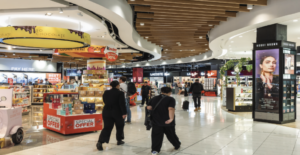
“But except for the conditions, I think we’re doing a great job. The spend per pax is better than in Sydney. And when you see the store they [Heinemann Oceania] have in Sydney, that is quite a performance.
“If we lose Auckland, we still have travel essentials in New Zealand. We are very good in this business. So, I always say that there’s no strategic contract. Even for Paris, we don’t go to lose money. Obviously Paris is not the most profitable contract but it’s acceptable. It doesn’t make sense to lose money… it’s not an asset when you’ve lost money for three or five years.
“It won’t give you more chance to win afterwards, except that you know the figures. But that’s it. So there’s no sense in having a ‘strategic’ price.”
There have been numerous examples in travel retail history – notably DFS Group’s decisions to not attempt to retain its liquor & tobacco concessions at Hong Kong International and Singapore Changi airports in 2017 and 2019, respectively – when walking away (or losing) a contract made a company more profitable overnight. Does Lagardère Travel Retail have a line in the sand?
“You can make mistakes but you’re not allowed to make any tenders loss-making. That’s the red line for us,” Rasmussen responds.
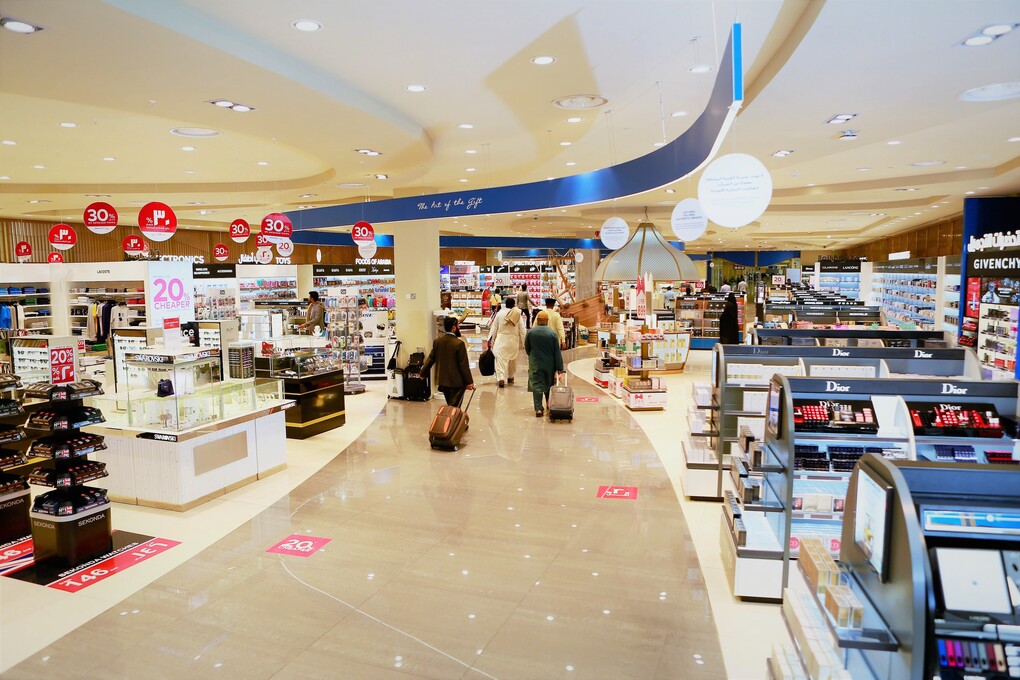
That red line, I suggest, has been drawn in China more than anywhere else, where the company has exited several businesses early or once the respective contracts have expired.
“China is an issue. We’re losing money in China, that’s for sure,” he concedes. “We’re renegotiating all the contracts because the market when we won the contracts and the market now is just so hugely different. So we try to renegotiate and when we don’t manage, we pull out. We’d love to remain in China, but obviously not at any price.”
Changes in the China consumer dynamic
How does Rasmussen view the whole Chinese traveller dynamic? Outbound travel numbers continue their resurgence but shopping behaviour by common recognition is a very different proposition from pre-COVID 2019.
“As I often say, I will not make any projections on China because I made two in a row wrongly,” he replies with a smile. “One, I said that China would not reopen [post-COVID] in the short term… but various reasons led to the borders opening [in January 2023]. So I was wrong that time. And when they opened the borders, I said, ‘Now, we’ll go back [to normal] in a day’. And I was wrong again, so there won’t be any prediction now.
“But, yes, we feel the current situation is long-lasting and we see it worldwide. Chinese spend is not what it used to be. Relative pricing between China and the rest of the world has changed. There is also a generation in China that had never known a crisis from birth to their 30s or 40s, only growth.
“So now that they’ve seen the crisis, they’re probably a bit more prudent. So despite saying I wouldn’t make any projection, I don’t see spend coming back as it used to be. We have the impression – and this what we and you read – that they’re more into experiences than products. That could be a part of it. That’s why they’re still travelling but spending less.”
So are the halcyon days of Chinese travel shopping over?
“No, because they’re still great shoppers. I know the demographics are bad but the middle class is still growing. I think there is a future for Chinese spend. But one thing COVID and the recent past taught us is that it’s not only about Chinese travellers – we have to cater to all travellers. When we see the growth of American spends, of European spends, I think there’s still room to grow in this business.
“I wouldn’t take that risk of concentrating on one segment. For me, the next wave is global travel retail That’s why we’re in three business lines. That’s why we’re international. Because what I’m fairly convinced about is that travel isn’t over. You’re a great example. Between your New Zealand origins, your kids in England, your Hong Kong base, you travel.
“Similarly, I have a child in Canada. He’s married to a Korean-born Canadian. They met in Peru. So I know that people will continue to travel. What we want is to have a business for the travellers and meet their needs. I will not concentrate on one particular segment. This is too risky for our shareholders and for the company. Because once that segment disappears, it’s tough times.”
The current decline was foreseeable, Ramussen observes. When the Chinese outbound business was at its peak, everyone was impressed by the great sales figures, he says, adding: “But still, if you run a company, you want it to be great for the long term.”
Travel vs planet
His point about the human desire (and need) to travel is well-made and it’s one that served him well internally during the pandemic.
“During COVID, I was extremely challenged because some said people will not travel again afterward. I was among the only ones to remain confident,” he recalls. “I said, yes, business is bad because there are no travellers, but they will be back. Internally, I stated confidence, and it was an honest feeling and I proved to be right.
“Strategically, we always look at the environment because we know there are two opposing forces, travel and the planet, because of the impact of flights on the carbon footprint.
“But up till now – and it’s something we’re monitoring very closely because it can change quickly – my feeling is that the need for travel is stronger today than the urgency of the planet. I think that aviation will adapt quickly with new-generation fuels, electricity and other technologies. I’m confident that the aircraft industry will adapt quicker than the urgency for reducing carbon.
“The air industry is between 3% and 5% of carbon emissions. It’s huge, but it’s not a game changer compared to what it brings in terms of communication, understanding between people, the pleasure of travelling and employment. So, yes, I’m still really confident in this positive evolution.”
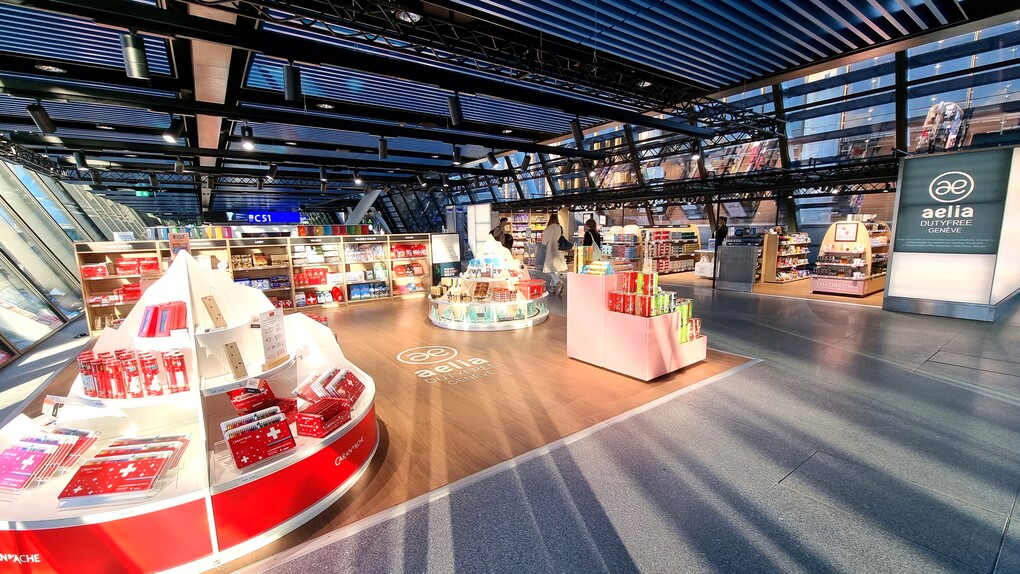
Airport stakeholders are right in the front line of public anxiety about the impact of travel on the environment. With that status comes a responsibility for Lagardère Travel Retail to be a standard-bearer for ESG principles, a remit Rasmussen embraces with pride.
“We launched our PEPS (Planet. Ethics. People. Social.) programme in 2019, as you know. But we started much earlier. Frédéric Chevalier [Deputy Chief Executive Officer] was the first one to have sustainable development [front of mind] within the Executive Committee. So it’s really something which we consider as fundamental.
“We have an important role to play. When we launched an eco-responsible store in Geneva and the airport posted it on LinkedIn, they had some negative comments, saying that it was greenwashing. We published basically the same story and received a very positive reaction, because it was all about a retailer changing.
“So the image we can project is different. We have to work around that. We work on all aspects – on responsible products, on packaging and all other dimensions.”
Returning to the subject of convergence between sectors, I highlight how Lagardère Travel Retail’s F&B peers such as SSP and Travel Food Services are investing more in airports lounges. Does the group have any serious lounge activity? Or aspirations?
“Hardly. We supply some lounges, but not many. It’s more about synergy between our food operations and lounges than running lounges by themselves. It’s a relatively different business and not the same kind of commercial approach. We are a B2C4B company and lounges are probably more B2B.
“Today, the size of our business is good enough and while our market share is okay, it can grow. For now, we’d rather concentrate on retail and dining. Lounges are not where we put our money immediately.”
But never say never?
“Yes, exactly. It can happen. If it’s important for an airport as a by-product, why not? But it’s definitely not a strategy by itself.”
Cash comes first but acquisitions possible
Commenting on the half-year results, Lagardère SA Chairman and Chief Executive Officer Arnaud Lagardère and Lagardère Group Deputy Chief Executive Officer in charge of Finance Grégoire Castaing said key priorities were lowering debt and cash generation. But Castaing also underlined a heavy €104 million capex in the semester, up sharply year-on-year, saying it reflected the company’s willingness to continue investing robustly in the sector. Does that mentality include acquisitions?
Rasmussen is not counting them in or out. Vivendi, which gained control of Lagardère in November, is still working out its strategy for the travel retail segment, he adds.
“Obviously, we as a group [Lagardère Travel Retail] would love to grow. What I told Arnaud Lagardère a couple of years ago is that now we have a size where we don’t need to grow. We don’t need to make acquisitions. But we as a management team would like to and we think it’s good for the company. It’s value-creative because our track record of integrating acquisitions has been very good.
“So we have the desire to continue growing through acquisitions. Not just in food, we find every segment of travel retail and dining interesting. They all have the same profitability profile because everything depends on rent. A travel essentials contract can be more or less profitable than food or duty free depending on the rent, market conditions and competitive environment. So while we’d love to grow in food, we’d also love to grow in duty free and in travel essentials.”
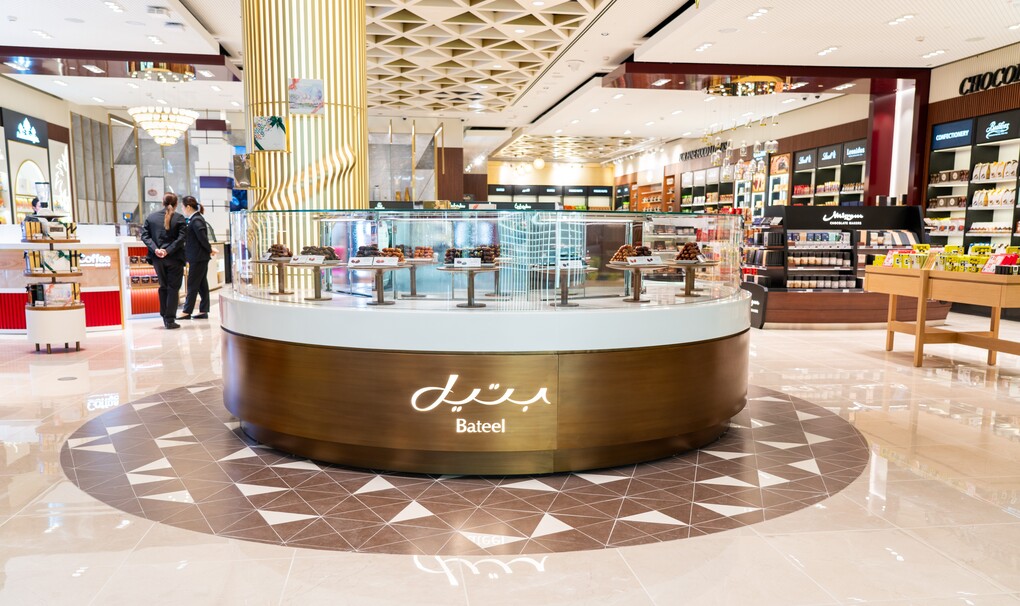
The three arms of the business are currently nicely balanced but that is not a constraint to boosting anyone’s share through acquisition, Rasmussen says.
“We’re relevant in all three now and that’s what’s important. We have to be relevant and credible in all three business lines. Now that we are, growth could come from any of the three business lines.
“The reason we won the northern airports part of Spain [i.e. Galicia, Asturias, Cantabria and Basque Country airports in AENA’s 2023 tender] is because we had this capacity to run global airports and three business lines. We are doing a great job in these.”
Given the earlier point that F&B and travel essentials (the clue lies in the name) are more about human needs and duty free is more about desire (or kindness in the case of gifting), how does Rasmussen see the future for duty free?
“I see it positively,” he says, based on the ability (or otherwise) of a retailer to make a difference. “My position is that yes, technically, spend per pax should decrease because of the economic law of decreasing marginal return. So the additional passengers should spend less. But that’s only the economic background. I say that we as a retailer cannot accept that. Instead we should continue to make it grow.”
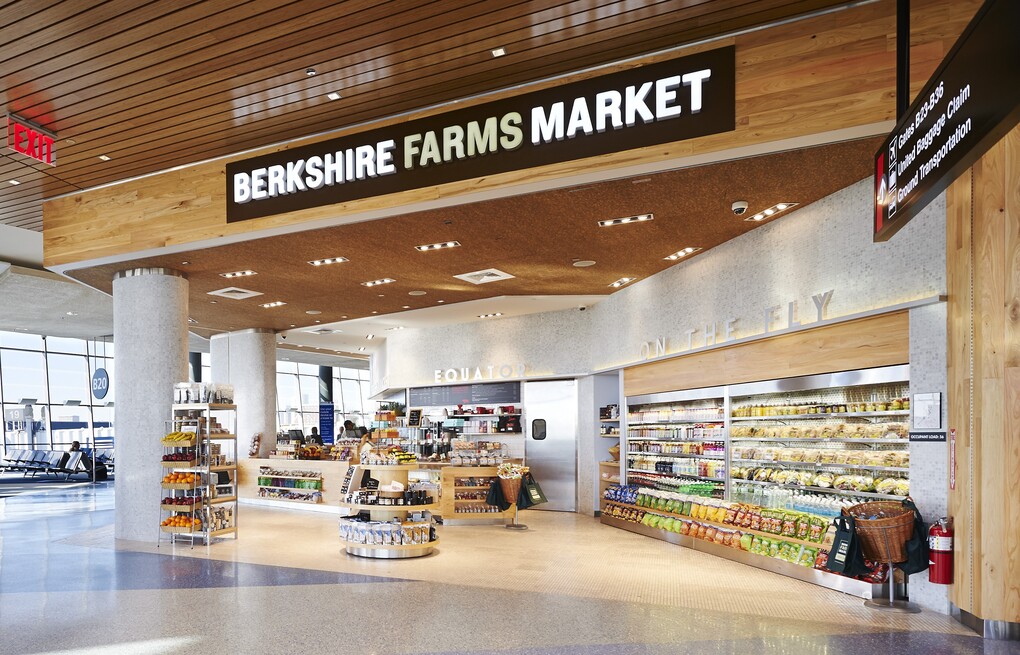
‘Here and nowhere else’ – the critical importance of sense of place
He adds: “The point is to see how we can continue to grow in a business where you have some categories which are at risk, like tobacco and liquor, where you have some trends in certain countries which are not that positive. And the short answer is sense of place. It’s having an offer which you don’t see everywhere else. It’s giving passengers some new experience.
“We summarised it in the Aelia concept ‘Here and nowhere else’, and that’s critical. The objective I set for the teams in duty free is to have 30% of local products. Sometimes we are way below but then we should work on it. It could be craft, it could be gastronomy, it could be wine, it could be lots of things.
“I often take the example of Sicily where we opened in Palermo. There we have 60% Italian products. And out of this, 60% is Sicilian products. Then when we opened in Catania [on the east coast of Sicily], it’s not the same Sicilian products. So it’s really local.
“It is about getting the local baker and other local providers. It takes a very specific organisation to do so with lots of local empowerment for local sourcing and buying. We did that in Dakar as well. I remember a guy from the executive committee of Total who I studied with, who is Senegalese, and he said, ‘When I go to your store, I love it because I find things which I don’t find elsewhere, even inside the country.’ So we can be a concentration of the country’s craft when we’re in the capital city airport.
“In Poland, the Czech Republic and in many countries we have a variety of local products which you cannot find anywhere else. This is something which is growing and which compensates some reductions elsewhere.”
Future positive
“So right now it is a bit tough overall with inflation and with all these geopolitical issues, which means in some areas there is stress on spend per pax. But the message is that we as retailers have a responsibility to continue to grow our business and the best way to make it grow is to make our stores different.
“That doesn’t mean the big brands don’t have their role. They are crucial. I would not have a store without LVMH, Chanel, Estée Lauder, L’Oréal, all the big brands. The local products are on top of that and it’s also something which is good for these big brands. I think the future is great because when you have the best customers and they grow in numbers, it’s your responsibility to make your business grow.”
In essence, the controllable factor is passenger growth which, occasional regional dips aside, can be factored in with a high degree of certainty. The differentiator on whether those passengers shop or dine is very much up to the retailer’s acumen.
“And by changing. When you have a change in passenger mix, for example, this is the sort of thing you have to work on very fast,” says Rasmussen.
A plea for profit sharing
Our time is up though we will meet again that evening in the good company of L’Oréal Travel Retail President Emmanuel Goulin at the Olympic Games’ swimming event (click here for our recent interview with Goulin that also addresses many of the key issues in this article).

Given that this interview will be read by delegates to two key travel retail events, TFWA World Exhibition and The Trinity Forum, does Rasmussen have any concluding message to the trade?
“Yes, my message is stop downplaying this industry and stop complaining about things. Just act and keep in mind the fundamentals. Travel retail and dining is the best segment in retail – maybe alongside ecommerce – because of the passenger profile, the amount of dwell time and the consumer mindset after security. We cannot afford to complain. We have to make this industry evolve.
“I’ve been fighting for profit sharing [with landlords] for a while. We have profit sharing with Lima through Fraport; with Cambodia [Techo International Airport] we are profit sharing across our three business lines. We have it with Irish Ferries and soon with another major industry player. So there is a change, a positive trend.
“It’s our responsibility as a travel retailer to help the industry change. Not from one day to the next and probably not applicable everywhere, but we have to think conceptually and see how this business should evolve. We’ve worked a lot around profit sharing. I haven’t seen any drawback on it. I think it’s optimal, but we have to convince airports.
“Rather than having one or the other [MAG or percentage] scenario, we would like to go in collectively with the airport wherever we can on a pure profit-share basis. That’s ideal at least when there’s size. If it’s only for one contract, it’s probably too costly for the airport.
“But it also takes some input from us. It means that we must accept to be audited on our purchasing conditions. We started that with Paris Airport, so we’re very well used to that. Airports cannot audit us, but any big full auditing company can. They audit us from end to end, so they know all our commercial conditions are as we say. So when we improve conditions, the benefits also go to the airport. It just takes some change of mindset.”
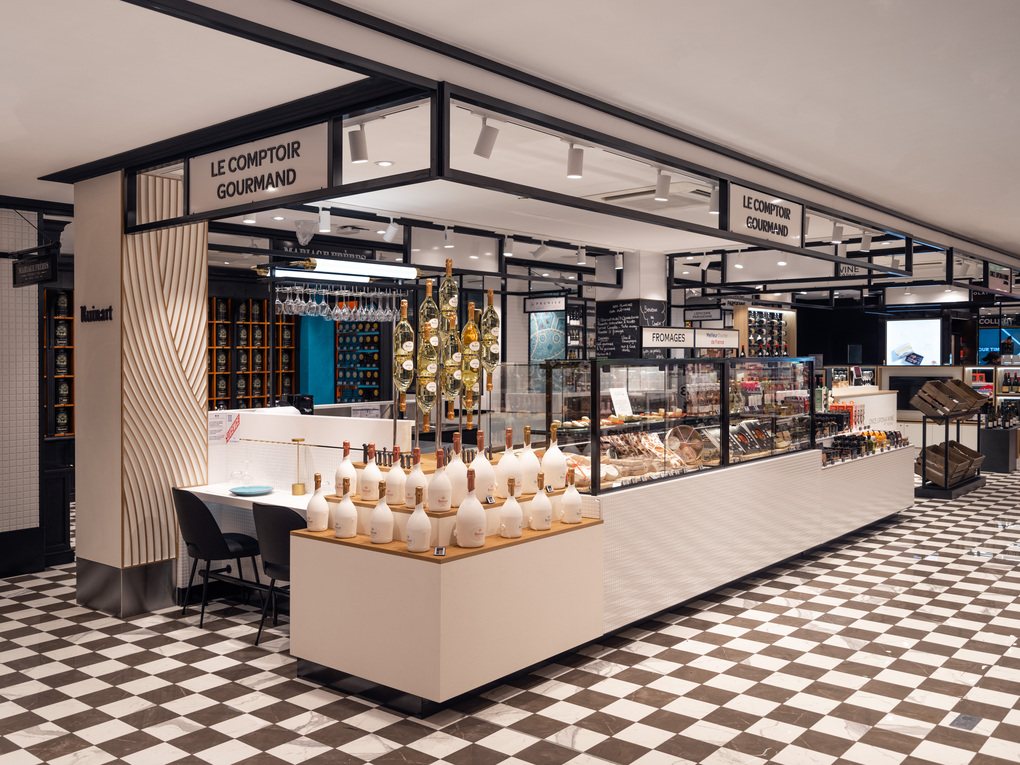
With a profit-share agreement in place the consumer benefits too, Rasmussen contends. For example in a traditional contractual situation an airport request to extend shop opening hours might be resisted by the concessionaire who would bear all the cost. And even with longer-term contracts which are becoming more commonplace, a concessionaire will be reluctant to invest, say, half-way through its tenure, due to high capex costs.
“With revenue share, I will not do it because I take all the costs. With profit share, it’s really a common decision because you have a higher share of the profit, but also share the cost of the re-capex. It really offers something optimal. If we want to reduce duty-free space and increase food or the opposite, we’re then able to do so.
“You cannot put all the risk on the retailer because the retailer won’t take it. I remember speaking with the CEO of Fraport. We explained that for logistics, we had an issue. We were wasting maybe a week which was very costly. He said, ‘I’m meeting the Finance Minister tomorrow.’ Within a week, it was solved. Not only because he was nice to us but also because it was interesting for him. It’s a full alignment of interest, which I think is optimal.
“Profit sharing takes convincing and takes examples. But what I’m proud about is having these huge international players understanding that. Some local ones as well. I’ve had a contract where somebody came to me and said, ‘You can get this airport for this rent and this MAG and this is how the MAG will increase.’
“I said, ‘Good idea, but not for us. If you want us, profit sharing is good.’ And they agreed. It was an airport which was relatively small, and it ended up profit sharing and everybody’s happy.”
Preparing for the future: Managing succession
Rasmussen has been in his leadership role since 2011. Is he still enjoying it, I ask? Anticipating the follow-up, he answers with a chuckle: “Yeah, I’m still enjoying it, but I’m obviously preparing for the future, which is probably your question behind it.
“With this new organisation, we have Frédéric as Deputy CEO and a Chief Commercial and Digital Officer [Lylian Vignau] and Chief Operational Performance Officer [Charlotte Delmas]. One focuses on understanding travellers’ needs, market evolution and adapting our formats and assortment. The other focuses on continuing to ensure excellence.
“We are in a business based on excellence, quality and market position. So, it’s both a change of organisation and preparing for the future without any set date for myself because it depends on how things evolve. One of my responsibilities is that after me, everything continues smoothly. So that’s what I’m building without announcing any date.”
So managing a careful and appropriate succession is part of his agenda now? “Yes, it’s the responsibility of every CEO. Obviously, it can also be very different from what you expect and at the end of the day, it’s the shareholders’ decision. But it’s my responsibility to prepare for it, and then it’s the shareholders’ decision on what they want to do. On that I’m very clear.” ✈




